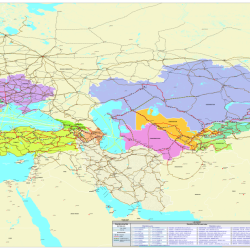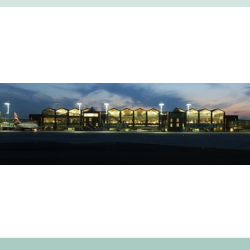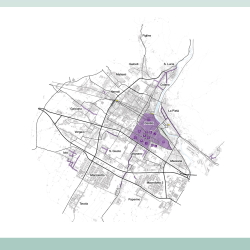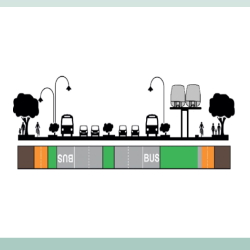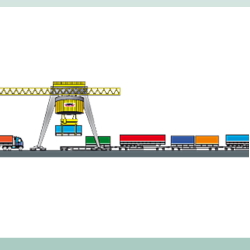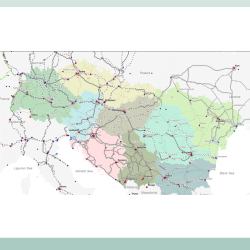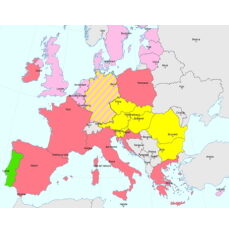- All
- African projects
- assessment
- assessment selected projects
- Assessment selected projects 2
- Assessment selected projects 3
- Assessment selected projects 4
- ASTRA
- Cost Benefit Analysis
- Electric mobility and ITS
- MOMOS
- planning
- planning selected projects
- planning selected projects 2
- planning selected projects 3
- planning selected projects 4
- planning selected projects 5
- projects
- Railways projects
- research
- research selected projects
- research selected projects 2
- research selected projects 3
- studies
- studies selected projects 1
- studies selected projects 2
- studies selected projects 3
- studies selected projects 4
- studies selected projects 5
- TRTingegneria
- TRUST
- urban mobility
- TRACECA IDEA I – Transport dialogue and interoperability between the EU and its neighbouring countries and central Asian countries Funded by the Directorate General for Cooperation and Development of the European Commission within the framework of the TRACECA Programme (TRAnsport Corridor Europe Caucasus Asia), the IDEA project aimed at improving the functioning of the transport corridor connecting Europe with Central Asia. The beneficiary countries of the TRACECA programme are Georgia, Armenia, Azerbaijan, Ukraine, Moldova, Kazakhstan, Tajikistan, Uzbekistan, Kyrgyzstan, Turkmenistan, with Romania, Bulgaria and Turkey as observatory countries. The project activities included the construction of the regional transport model, the deployment of a capacity building program for the national officers on themes like project planning and assessment, the definition of indicators to measure the corridor attractiveness and the organization of two international conference where the countries representatives presented their transport project along the corridors to banks and international financial institutions. The consortium led by TRT was composed of PTV, Dornier Consulting and Alfen.
- Transport analisys of the land-side strategies of the Marco Polo Airport (Venice) TRT supported SAVE to define the land-side infrastructure Marco Polo Airport in Venice according to the interventions of both short and medium-long term linked to the new Masterplan Airport. The activity had been divided into two phases, with different methodological approaches: the First Phase aimed at supporting SAVE spa in defining the new Public Transport routes to the terminal and the new parking area of the commercial buses. the Second phase aimed at developing a dynamic microsimulation transport model in order to support of the medium and long term scenarios of the airport Masterplan (2021-2027) defining the performances and the level of accessibility of the land-side transport schemes.
- Prato – Urban Traffic Plan (PGTU) After drawing up the SUMP (a strategic mobility plan with a ten-year validity) approved in 2016, TRT was responsible for preparing the Urban Traffic Plan (PGTU) of the city of Prato, 190,000 inhabitants near Florence, Italy. The PGTU is the “action plan” of the SUMP, thus detailing SUMP short-term actions both in the Reference Scenario and in the Planning Scenario. The activities concerned: the design and supervision of a campaign to detect urban traffic flows at 12 sections and 15 urban intersections; the adaptation to a more detailed scale of the traffic simulation model (AIMSUN, already available at Municipal level) and its calibration; the design of the Reference Scenario, which included actions already approved and financed, and of the Planning Scenario with particular attention to the measures that can be implemented in the short term (road network, public transport, cycling, demand-management policies, parking, urban logistics, ITS), consistent with what has been proposed by the SUMP; the assessment of the planning scenario as well as the preparation of the related indicators and graphic outputs. The PGTU has been approved by the Municipal Council on 27/12/2018 with the act n. 477.
- Mobility data in European countries As part of a study aimed at modelling the charging infrastructure for electric vehicles in Europe, Nissan Technical Centre Europe charged TRT to carry out two studies. The first study was aimed at elaborating a set of statistical indicators to describe commuting car trips with destination in a selected number of European cities. The indicators was developed for all cities with a population of more than 250,000 inhabitants in seven different countries: France, Germany, Italy, Netherlands, Norway, Spain and UK. The objective of the second study was to identify the location of fast recharge facilities available in the same seven countries mentioned above and also to provide typical traffic daily profiles on the road network of these countries.
- Shanghai Jinshan Marina Urban Planning (China) Following the winning of the international context by GALA engineering, TRT was selected to carry out the design of road transport network and the Public transport system in the marina of Jinshan New Town, located south of Shanghai. The project integrates two innovative solutions: multimodal transport system with bus, rail and innovative systems dedicated transport system for the cruise port planned to accommodate thousands of tourists daily Area: 2.6 million of square metres Definition of parking areas according to a wide range of functionalities serving more than 150 000 users. Definition of parking pubs to accommodate seasonal touristic flows leaving form the new cruise port Definition of cycling and pedestrian paths to connect the new seaside and the green areas
- Gathering additional data on EU combined transport This study, committed by DG MOVE to TRT and MDS, presents a detailed analysis of combined transport (CT) operations in the European Union (EU) and provides quantitative and qualitative evidence of the current status of the European CT sector. By updating the information with respect to the 2015 fact-finding study (entitled “Analysis of the EU Combined Transport”) the study was designed to help DG MOVE to identify measures that would be effective in supporting the CT sector. The analysis was supported by a survey, which allowed the consultants to collect primary data on CT operations for the reference year of 2015 from a full cross-section of EU Member States for different modal combinations and industry sectors. For each combination of modes, detailed data on the volumes of transhipments and the main costs involved in CT operations are analysed and discussed both at a European and a Member State (MS) level and further analysed through a series of statistics and indicators. The study also examines the current use of regulatory support measures introduced by Directive 92/106/EEC; these measures address issues such as own-account transport and road haulage cabotage. By offering a number of indicators on CT operations and insights into the related legislative framework, the study represented a key information source for the completion of the European Commission’s Impact Assessment of the amendment to Directive 92/106/EEC.
- Transport Study for the Danube Macro-Region The study was conceived for the EU Strategy, specifically for the Priority Area 1b of Mobility and Multimodality, addressing road, rail and air transport modes. The EU Strategy tackled mobility challenges and aimed at identifying opportunities to support the development of transport networks within the so-called Danube Macro-Region, whose geographical scope embraces fourteen European countries. The overall objective of the study was to create an integrated multimodal transport study. The tasks of the study were organised to cover the following activities: perform an extensive review of studies, at national and supranational level, and databases to collect information on the transport sectors, socio-economic characteristics, future demand projections as well as proposed transport projects. elaborate a baseline scenario of the Danube Macro-Region analysing (i) the transport demand and forecasts, (ii) physical and non-physical bottlenecks and (iii) environmental and safety issues. identify relevant linkages to ports emerged from the Inland Waterway 1a study that could be tied with the three modes considered. split the Danube Macro-Region in a number of Functional Regions to go beyond a country centric approach. evaluate current priorities and developments in linkage to the TEN-T core network corridors. carry out a stakeholders consultation for projects identification. The study identified 23 relevant projects representative of the broadest types of transport problems identified in the Danube Macro-Region, or that could be faced in the future. The projects were all considered relevant for the development of the transport sector and the final list stemmed from a long list of interventions proposed by the CNCs studies, the SEETO Multi Annual Plans, the updated REBIS study, as well as the national transport plans and strategies. Also, other projects proposed by interested stakeholders were taken into consideration. The proposed projects were selected taking into account relevant criteria: estimated investment costs, timing of implementation, ability to address bottlenecks or safety issues and geographical and modal distribution. The analysis rendered a comprehensive description of the proposed projects despite the fact that some information was missing. The approach followed and the screening and data collected for all the projects from the various studies, plans and strategies gathered, could be a useful starting point for further and specific analyses and for the identification of a lively pipeline of relevant projects in the region. The framework of the identified Functional Regions could give additional guidance in this sense.
- Support Study for the Impact Assessment Accompanying the Revision of the Eurovignette Directive (1999/62/EC) The charging of heavy goods vehicles (HGVs) for the use of road infrastructure in Europe is governed by Directive 1999/62/EC (the “Eurovignette” Directive). The Directive aimed to achieve step-wise harmonisation of vehicle taxes and establishment of fair mechanisms of infrastructure charging. The general objective of the proposed revision of Directive 1999/62/EC is to promote financially and environmentally sustainable and socially equitable (road) transport through wider application of the ‘user pays’ and ‘polluter pays’ principles (fair and efficient pricing). This study supported the DG MOVE experts in evaluating the impact of the new Directive analysing several interventions trough three different models: ASTRA (to estimate the impacts on the transport and economy systems), TRUST (to estimate the impacts on the traffic distribution), PRIMES-TREMOVE (to estimate the trend of the vehicle fleet). The model suite covers the entire transport system (e.g. transport activity represented at Member State level, by origin-destination and at link level, technologies and fuels at Member State level, air pollution emissions at Member State and link level and CO2 emissions at Member State level) and its macro-economic impacts. The modelling is complemented by a literature review and stakeholder consultation. Input from stakeholders is gathered via an online public consultation and a targeted consultation (mainly via interviews, with some written contributions) that gathers more detailed views and factual information on the considered policy options. For more information Support Study for the Impact Assessment Accompanying the Revision of the Eurovignette Directive (1999/62/EC), Final Report
- Support study for the impact assessment for the revision of EETS legislation The implementation of an interoperable electronic tolling systems (European Electronic Toll Service – EETS) was one of the objectives of the European Commission. This study supported the European Commission to assess the impact of the revision of Directive 2004/52/EC establishing the rules to introduce the electronic tolling systems for trucks and passengers cars, in order to automatize and simplify the revenues collection process. This study supported the impact assessment of the European Commission in: analysing and reporting the outcomes of the consultation exercises conducted as part of the ex-post evaluation and impact assessment. providing missing data and information to complete the problem definition defined by the Commission and validating the latter or proposing changes. assessing the impacts of a lack of interoperability comparing three policy options against a baseline scenario. The impacts were estimated for road users (i.e., trucks, coaches and private cars) and toll chargers, with regard to direct and indirect costs. calculating the impacts related to development scenarios with respect to cars, trucks and coaches travelling on international journeys. Overall, taking into account the effectiveness, the efficiency and the comparison of other impact categories, the support study identified the legislative approach (i.e., the option of introducing market correction entirely via legislation) as the one more likely to ensure a level playing field across a wider region and performing better than the self-regulated option. Based on the impact assessment carried out, the solution of both regulatory and market failures with legislative means emerged as the preferred option for future implementation. TRT was responsible for the following activities: development of the model for quantifying the cost and time-losses for road users due to lack of interoperability of electronic tolls in the EU; development of the baseline scenarios within the Excel-based model; development of the policy scenarios in the model and assessment of the economic impacts. For more information Final report – Support study for the Impact Assessment for the Revision of EETS Legislation (Directive 2004/52/EC & Decision 2009/750/EC)

